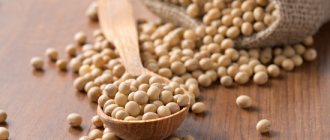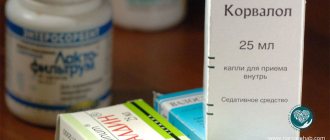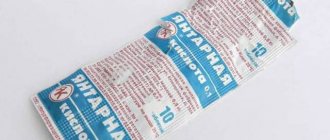Mayonnaise is one of the favorite snacks of people from different countries of the world. The sauce is added to almost all appetizers, side dishes, fast food, and main courses. Due to such widespread popularity, housewives prepare mayonnaise at home. It is difficult to find natural products on store shelves. Instead of eggs, yolk powder is added, and lemon juice is replaced with other artificial preservatives. When it comes to the benefits and harms of sauce, first of all, we mean a natural product.
History of mayonnaise
In fact, there are several versions of the origin of everyone’s favorite mayonnaise sauce, but they are all connected with the name of the French city of Mayon. In the 18th century it was besieged by the British, and its inhabitants had only eggs and olive oil for supplies.
One of the court chefs was ordered to prepare something unusual from this meager but useful set of ingredients. This dish was a cold sauce made from egg yolk, butter, salt and spices. Later it was served in the already liberated city as an addition to meat and fish dishes.
Today there are many recipes for making sauce, but they are always based on eggs and vegetable oil. The most popular is Provencal mayonnaise, also originally from France.
What myths are there today about the use of mayonnaise?
Mayonnaise is used in a very large number of dishes. Its most important qualities are nutritional value, ease of preparation and pleasant, unobtrusive taste. But there are many speculations about its negative impact on human health.
The first myth. You won't find real mayonnaise today
Yes. Of course, completely natural products are very rare in the modern world. They are more expensive, spoil faster, and are less profitable for manufacturers because they are more difficult in terms of mass preparation and delivery.
For this reason, mayonnaise, which is prepared completely according to all the rules, is almost impossible to find in the store. Literally, a few percent of all products on display will actually be healthy.
There is a way out of the situation: for example, make the sauce yourself. It turns out that his recipe is quite simple, and all the available ingredients can be purchased separately at any supermarket. Moreover, they are most likely to be completely natural, with a minimum of chemical additives, as they are natural. The same can be said about eggs, oil, vinegar, mustard.
Second myth. Cooking features
There is a strong and long-known opinion of opponents of mayonnaise that during the preparation itself, products enter into such a special reaction with each other that harmful and even toxic substances appear in the sauce.
To debunk this myth, you just need to look at the standard and well-studied recipe and cooking method.
So, today's technological maps for preparing mayonnaise differ little from the classic ones. The manufacturer grinds the egg yolks, adds salt, sugar and mustard to them as much as needed for taste, and then begins to pour in olive or vegetable oil in a thin stream. In this case, no heating is required, and the sauce is mixed in one direction with simple stirring.
What are the health benefits of mayonnaise?
The benefits of mayonnaise are talked about conditionally if it is an industrial product. Today, such a sauce is rarely made from natural ingredients. Only mayonnaise made at home from fresh and natural products can be healthy. This sauce contains vitamin E, group B, lecithin and albumin - substances that are beneficial for the nervous system, skin, hair and metabolism.
The benefits and harms of mayonnaise for human health largely depend on the fat content of the product. The less fat component, the easier the sauce is for digestion. In general, this product improves the production of gastric juice, which means it promotes intensive digestion. Therefore, it is useful to serve homemade mayonnaise with meat.
Mayonnaise for men and women is beneficial because it contains vitamin F, which helps cope with negative environmental factors and increases the body's resistance to stress. For women, it is a source of polyunsaturated fatty acids, which help maintain youthful skin and hair.
Detailed composition of the product
Eggs are very rich in B vitamins, vitamin F, choline, and tocopherol. And this is only a small part of the beneficial substances in chicken or quail eggs. It is also interesting that some beneficial substances are no longer found in other products. So mayonnaise can also be considered a unique product that helps maintain health. For example, the eggs it contains, both the yolk and the white, help accelerate the body’s metabolism and increase the production of blood cells.
Vinegar lemon juice as standard ) are natural preservatives that help get rid of many pathogenic bacteria. The effect of this product is not only on the oral cavity, but also on the upper digestive tract, right up to the stomach.
It is believed that vinegar or citric acid have a positive effect on dental health: they whiten enamel, disinfect gums, tongue, and palate. However, a long-term effect on the oral cavity is not recommended, so it is better to rinse your mouth after eating with mayonnaise with at least plain water, or better yet, with herbal decoctions.
Another important element of mayonnaise is mustard or mustard powder . This is another component of the sauce that fights harmful microorganisms and viruses. It has been proven that products with mayonnaise have a beneficial effect on the immune system and are even indicated for those people who have weak resistance to diseases. Especially during epidemics.
For example, you don’t even have to come up with completely complex recipes for dishes. It is enough to eat simple salads: garlic with mayonnaise or beets with mayonnaise - this is an easy way to strengthen protection against diseases, as well as make it tasty and healthy, without harm to health.
Is mayonnaise suitable for pregnant and lactating women?
The diet of a pregnant and lactating woman should be as natural and healthy as possible. Therefore, doctors do not recommend including complex foods rich in chemicals and GMOs in the menu. Mayonnaise is a product that is not produced without the participation of chemicals, the least of which are preservatives and monosodium glutamate.
Homemade mayonnaise is not contraindicated during breastfeeding and while pregnant. On the contrary, it promotes better absorption of food; the main thing is not to overuse this delicious sauce.
Attention! Weight gain and the likelihood of an allergic reaction are some of the possible consequences of consuming the product in large quantities.
Effect on the brain
Most store-bought mayonnaise products are full of artificial ingredients and preservatives, including soybean oil.
A study conducted by the University of California (UC) Riverside, published in the journal Endocrinology in February 2020, found a link between soybean oil consumption and brain function.
Two types of soybean oil have been studied
, and both had equally bad effects on the brain. The main changes observed were in the hypothalamus, an area of the brain that is associated with a number of functions such as body weight, metabolism, body temperature, reproduction and stress response.
Harm of mayonnaise and contraindications for use
Any chemical components in products are harmful to health. There are several such components in mayonnaise. These are emulsifiers, flavor enhancers, preservatives, vegetable trans fats, dyes. All of them are difficult to digest or indigestible substances that accumulate on the walls of blood vessels, in the intestines, and poison the liver. This is precisely why store-bought mayonnaise is dangerous, the benefits and harms of which for the human body are very doubtful. Its systematic use is undesirable.
Mayonnaise is contraindicated for:
- increased stomach acidity;
- ulcers and gastritis;
- elevated blood cholesterol levels;
- obesity;
- liver diseases.
Otherwise, moderate consumption of the product will not significantly harm your health.
Negative impact
The harm of mayonnaise is that it contains a significant amount of fat.
Its standard fat content is 67%. As you know, the energy value of 100 grams of fat is 900 kcal. In addition, the sauce practically lacks such a nutritional component as protein, which is essential for the body. That is why a small pack of this product (200 grams), which is used by the housewife to prepare a salad, increases its calorie content by 1300 kcal, which is equal to half the body’s daily energy requirement. And even by adding a small spoon of mayonnaise to dumplings or pasta, we increase the calorie content of the dish by 100-200 kcal, which is quite dangerous during low physical activity.
How to replace mayonnaise on a diet
The calorie content of mayonnaise per 100 g is 620-680 kcal. This applies to products with a fat content of more than 55%. No diet allows such heavy sauces in the diet. Therefore, other dressings are prepared for salads, and other sauces are served for main courses. So what can you replace mayonnaise with during a diet? Low-fat sour cream or yogurt is suitable as a dressing. Spices or herbs, such as parsley and dill, are added to them to make the dressing more expressive in taste.
You can serve the meat with yogurt with soy sauce and spices. As a last resort, prepare mayonnaise at home and dilute it with low-fat sour cream and add chopped garlic. This sauce can be served with potatoes, fish or meat. Mayonnaise is harmful for weight loss. It makes the diet heavier, promotes fat accumulation, and increases appetite. Therefore, they refuse it, even if it is prepared at home.
We recommend reading: Potatoes: beneficial properties and contraindications
How to minimize the harm of the sauce and what can replace it?
Mayonnaise, as a popular complex product, has become quite firmly established in the daily diets of most citizens of the post-Soviet space. However, in some cases it is still possible to find a replacement for it. The most interesting, simple and original substitutes:
- Spicy milk sauce. Suitable for almost all fish and vegetable dishes;
- Sour cream and mustard sauce. It is optimal for dressing Olivier-type salads;
- Sour cream and adjika sauce. It is a combination of spices and herbs, as well as classic natural sour cream. Ideal for roasting vegetables or meat in the oven;
- Natural yogurt. A very unusual, but quite tasty option, suitable for light green salads. To improve the taste of natural unsweetened yogurt, you can add a pinch of ground coriander or black pepper;
- Salted kefir. Suitable for vegetable and herbal salads;
- Garlic soy sauce. Ideal for grilled meat.
How to minimize the potential harm of mayonnaise to the body? First of all, significantly reduce the amount of product consumed, adding it very sparingly only to the most necessary dishes. In addition, it is worth strictly observing the shelf life, especially if we are talking about a homemade version of the sauce, which can lie in the refrigerator under a tight lid for no more than 48 hours.
Industrial versions of products are stored longer due to the large number of artificial preservatives , however, it is still necessary to pay attention to their possible service life and also store them in proper conditions. If possible, it is worth diversifying your diet with other types of sauces given above, so as not to concentrate on mayonnaise alone as an absolutely indispensable component of all possible salads, meat dishes and other products so dearly loved by domestic citizens.
How to make mayonnaise at home
The classic cooking recipe involves the simplest ingredients, the volumes of which can be adjusted to your taste. The basis is high-quality olive oil and fresh chicken yolk. On average, 1 egg is required per 100 g of butter.
Cooking technology:
- beat chicken yolk with salt and black pepper;
- add a little mustard, beat;
- Gradually add olive oil in a thin stream until the desired consistency of the sauce is achieved;
- At the end vinegar is added as a preservative.
Some recipes add citric acid instead of vinegar. You can also experiment with a set of spices.
Tips for use
- Avoid using factory-made sauce, as this product is completely devoid of beneficial properties and can only cause harm to the body. Cook it yourself or buy from trusted, honest manufacturers who use natural ingredients.
- The recipe for homemade mayonnaise is very simple. You will need eggs, olive or sunflower oil, mustard, salt and sugar, lemon juice (or vinegar). You can add fresh herbs - dill or parsley. Next, you need to mix the ingredients thoroughly and beat until smooth, adding the oil gradually. That's it, homemade sauce full of vitamins is ready!
- If for some reason you cannot prepare mayonnaise and are constantly forced to use store-bought mayonnaise, it is better to replace it with healthier sauces, such as sour cream or yogurt.
- Do not overuse mayonnaise, even homemade. It is still a very high calorie product.
The benefits and harms of homemade mayonnaise
Homemade sauce is very rich in vitamin E and fatty acids. That is why it is useful for the prevention of cardiovascular diseases and normalization of cholesterol levels in the blood.
This product makes dishes easier to digest, as it stimulates the production of gastric juice. The naturalness of the ingredients allows you to use it in home cosmetology without fear. Masks based on it improve skin condition, rejuvenate, nourish and smooth out wrinkles. The benefits of homemade mayonnaise for the body primarily lie in its safety. It contains no dangerous trans fats, preservatives or flavor enhancers. This sauce can be given to both children and elderly people.
Possible harm
Mayonnaise prepared in factories really does more harm than good and it is no coincidence that it is considered one of the most harmful products, and here's why:
- First of all, in an “industrial” sauce, all natural and healthy ingredients are replaced with cheaper and harmful analogs : egg powder is used instead of eggs, the oil is refined, and instead of “good” fats, the product is oversaturated with trans fats. This sauce has a negative impact on our health and can actually increase cholesterol levels, slow down metabolic processes in the body and negatively affect digestion.
- Industrial mayonnaise contains flavor emulsifiers , and therefore is consumed in large quantities and is addictive. Given the high calorie content (more than 800 calories per 100 grams), abuse of the product quickly causes obesity and all related problems.
- Mayonnaise can negatively affect skin health , increasing sebum production and thereby promoting the formation of acne and rashes.
- When baked, factory sauce can release dangerous carcinogenic substances , which, of course, have an extremely negative impact on health.
- Abuse of mayonnaise can cause problems with the digestive system : heartburn, poisoning, diarrhea, flatulence, bloating.
- The sauce is not very good for heart health either.
Mayonnaise for hair beauty
The fats contained in mayonnaise are useful for improving hair structure, nourishing it and preventing moisture loss. Masks with this sauce are especially appreciated for dry and damaged hair, which react painfully to dry air and ultraviolet radiation. There are a lot of recipes for useful masks; you just need to choose the most effective one according to your individual plan.
Hair growth mask
To enhance hair growth, it is necessary to provide the hair follicles with nutritional and stimulating components. In this case, mayonnaise acts as a healthy and nutritious base, and baker's yeast enhances growth. First 1 tsp. yeast is poured with a small amount of warm water and allowed to swell.
Next, prepare the mask as follows:
- Add beaten yolk and a few drops of any essential oil to the yeast;
- melt a piece of butter in a water bath and add it to the yeast;
- To achieve the ideal consistency, mayonnaise is added to the mass.
The useful composition is applied to the head and left for 1 hour, covered with a towel. Repeat the procedure 2-3 times a week.
Hair loss mask
To prevent hair breakage and weakening of hair follicles, prepare the following useful mask:
- liquefy honey in a water bath (1 tsp);
- mix warm with mayonnaise (50 ml);
- add 1 tbsp. l. nettle decoction, mix everything.
We recommend reading: White lily: photo and description, use in folk medicine
The product is applied warm to the hair roots and distributed over the entire length. Wrap your head and leave the mixture on for 1 hour. Repeat the mask 3 times a week for 1 month.
Mask for restoring damaged hair
After unsuccessful curling, coloring or prolonged exposure to the sun, curls lose moisture and become dry and unruly. To restore their beauty and shine, prepare the following composition:
- beat 2 yolks;
- combine with mayonnaise (30-50 ml);
- add 3-4 drops of grape seed oil or ylang-ylang;
- Apply the composition for 30 minutes, rinse with water and rinse with burdock decoction.
Advice! If the curls are dry at the ends and oily at the roots, apply a useful mask only to the damaged ends.
Paint remover mask
In order not to use aggressive chemicals, a mixture of mayonnaise and lemon juice in equal proportions is used to remove color pigment from hair. In a water bath, the composition is heated to a temperature of +40 ° C and applied to the entire length of the curls for 1-2 hours. The procedure is repeated every 3 days until the desired effect is achieved. If your hair color is radically different from your natural color, you can use apple cider vinegar instead of lemon; it will remove the pigment faster and will not harm your hair.
Hair lightening mask
Homemade mayonnaise alone or in combination with other ingredients is used as a mask. If you use one sauce, apply it to your hair every 3 days for 2 months. After this period of time, the hair lightens by 2 tones.
For a more pronounced effect, mayonnaise is mixed with honey and lemon juice. The useful composition is heated and applied warm to the head, covering it with cellophane. The procedure is repeated 2 times a week.
Masks for dry hair
Mayonnaise as a source of vitamin E and fats is very beneficial for dry curls. Its effectiveness is supported by ingredients such as:
- aloe juice;
- honey;
- chicken yolk;
- Coconut oil;
- fat sour cream.
The components are mixed in any combination and proportions, the main thing is to achieve a consistency convenient for application. The compositions are alternated so that the hair does not get used to the active ingredients.
Home hair lamination
The basis of the lamination mask is properly prepared gelatin. Typically, ¼ cup of warm water requires 2 tbsp. l. granules After they are dissolved, mayonnaise is added to the slurry in such an amount to obtain a thick consistency. The mask is applied to the curls with a brush, insulated with cellophane and left for 1 hour. The procedure can be repeated once a week.
There is another option for laminating at home. To do this, the sauce is mixed with corn starch, allowed to swell and applied to the hair. The proportions are approximately the same.
The history of everyone's favorite sauce.
Yes, mayonnaise can really be beneficial for our body, but provided that you prepare the sauce at home and from natural ingredients. The benefits of a “store-bought” product are much less significant, so everything described below applies more to homemade sauce.
- Scientists have proven that mustard oil contained in some types of mayonnaise can have a positive effect on the nervous system and psyche and improve mood. This is explained by the fact that mustard has the ability to increase the production of endorphin (the hormone of happiness) in the body.
- The sauce contains large quantities of vitamin E, which maintains hair, nails and epithelium in good condition, and also has an extremely beneficial effect on the health of the female reproductive system.
- Homemade sauce does not cause excess cholesterol production, since it does not contain harmful egg powder and milk powder. It can also be a source of healthy fats, which is helpful if you are underweight or have menstrual problems. To get even more benefits from the sauce, you need to cook it with olive oil.
- Vinegar in mayonnaise accelerates metabolic processes in the body and also improves the functioning of the digestive system.
- Mustard in homemade sauce has a beneficial effect on our immune system and also has an anti-inflammatory effect.
- Oddly enough, mayonnaise can also be used for cosmetic purposes. Based on the product, you can make nourishing hair masks. This procedure will give your hair a well-groomed appearance and thickness, reduce hair loss and fragility, but you should remember that mayonnaise masks should only be used if you do not suffer from increased oily scalp.
There are several versions of his invention floating around the world. According to one of them, humanity should be grateful to the famous Duke of Richelieu, who commanded an army that came under siege on a Spanish island. The besieged had a tight supply of food, but the Duke was tired of eating only omelettes. And then the cook proposed a new dish of spiced eggs beaten with butter, which was named mayonnaise in honor of the capital of the island.
According to another, French restaurateur Olivier - yes, the same inventor of the indispensable New Year's salad, opened his own business in Russia. He brought with him a family recipe for a piquant white sauce flavored with mustard and vinegar. Thus began the conquest of classical Provençal across our country.
The era of mayonnaise.
Back then it was a perishable sauce based on eggs and olive oil. Storing it for more than 2 days was simply fraught with food poisoning. And now this product, which fills our supermarkets, is suitable for consumption for six months! And there are also full display cases of salads flavored with mayonnaise.
Only one of the country's factories produces hundreds of tons of the favorite sauce per month. And all this will certainly be eaten, since 90 percent of Russians will not sit down at the table without mayonnaise. According to statistics, each person consumes 2 kg of this product. No one is embarrassed that we live in the era of this sauce.
Benefits of mayonnaise for skin
To improve complexion, tighten oval shape, smooth out wrinkles and get rid of acne, many women use homemade mayonnaise masks. They contain a lot of vitamin E, choline and lecithin, which protect cells from free radicals, stimulate the production of collagen and elastane, and also cleanse. Such masks should not be used if there is a pronounced vascular network on the face and purulent rashes. If a woman has oily skin, such compositions are also contraindicated for her.
Anti-wrinkle face mask
To improve skin tone and smooth out fine wrinkles, mayonnaise is combined with the following ingredients:
- strong brew of black tea;
- honey;
- chicken yolk;
- olive oil;
- boiled potatoes;
- tomato;
- sour cream.
Recommended reading: Benefits of tomatoes for the body
It is useful to add 2-3 drops of a suitable essential oil to any composition. A mask made from homemade mayonnaise, honey and tea leaves is highly effective. This is applied to the skin for 25 minutes 3 times a week.
If bee products cause allergies, you can prepare a mask from full-fat cottage cheese, mayonnaise and olive oil. The ingredients are taken in arbitrary proportions. To prevent the skin from getting used to the active ingredients, the compositions are changed, and mayonnaise is replaced with equally healthy sour cream.
Anti-acne face mask
Acne and various types of rashes are frequent companions of oily or combination skin. To get rid of them, you need to thoroughly clean the pores and use antibacterial and anti-inflammatory agents.
Recipe for a healthy acne cleansing mask:
- squeeze out 1 tbsp. l. lemon juice;
- combine with 1 tsp. liquid honey;
- add to the bowl with thick mayonnaise (3 tbsp.).
The composition dries out the skin and rashes, disinfects, nourishes and brightens. Repeat the mask 2-3 times a week.
If your skin is oily, you can remove excess sebum, dirt, and dry out breakouts with a simple salt scrub. To prepare it, mayonnaise is mixed with fine salt in a 3:1 ratio. First, the composition is applied in a greasy layer to the face for 10 minutes, and then massaged with fingertips for another 5 minutes. The beneficial scrub is washed off first with hot and then with cold water. For some time, a slight twitching is felt on the face, which will soon pass. This scrub is not suitable for dry skin.
Why is mayonnaise harmful?
How to prepare dressing at home? Will there be any specific components needed for this? To make homemade sauce, you will need simple ingredients at room temperature and a blender.
Components:
- Egg yolk.
- Table salt (half a teaspoon).
- Mustard (five grams).
- Ground black pepper (pinch).
- Granulated sugar (half a teaspoon).
- Lemon juice (two teaspoons).
- Olive or sunflower oil (2/3 cup).
The first five ingredients are mixed using a mixer or blender. Without stopping the operation of the device, vegetable oil is slowly poured in. After acquiring the required consistency, add lemon juice. If the sauce turns out thick, you can add two tablespoons of warm water and whisk again. This dressing can be stored in the refrigerator for three days.
Know the limits
They say that you can even get poisoned from bread if you eat 40 loaves in one sitting. It’s the same with mayonnaise: if you eat it without knowing the limits, then problems may soon begin.
If you consume the sauce in limited quantities, you can only get benefits from the product and avoid all problems, because the body is quite capable of coping with harmful substances that come in small quantities.
Nutritionists and doctors have established a norm: up to 3 tablespoons of mayonnaise per day, taking into account the fact that a person no longer eats sugar. Those who cannot imagine a day without sweet tea or sweets should reduce the “dose” by 2 times.
Find out how much harm and benefit industrial mayonnaise can actually bring to the body, as well as contraindications and myths that are broadcast by many sources. All information provided will be about commonly found ingredients in industrial mayonnaise. It may be incomplete if the manufacturer provides inaccurate information about the composition or uses low-quality raw materials.
Harm
High calorie content
On average, mayonnaise contains 500–700 kcal/100 g. A level tablespoon contains approximately 90 kcal.
May lead to imbalance of omega-3 to omega-6
Normal: omega-6 should be a maximum of 4 times more than omega-3. Vegetable oil found in mayonnaise can significantly increase omega-6 in the body, leading to an imbalance. Because of this, various metabolic diseases are possible.
For example, sunflower oil contains 200 times more omega-6 than omega-3.
Possible harm
May lead to obesity
The main culprit is trans fats, which are found in modified vegetable oils. They are not absorbed in the body and remain in the gastrointestinal tract and liver for a long time. Most trans fats are usually found in light types of mayonnaise.
In addition to obesity, trans fats can cause coronary heart disease and arteriosclerosis.
Some sources indicate that trans fats can only be in solid form. This is wrong. In raw vegetable oil there is no more than 0.5%, and in refined oil no more than 1%. Therefore, if other oils are used in addition to mayonnaise, it is easy to exceed the maximum dose recommended by WHO - 2-3 grams.
For comparison, there is 1.5-6% in spread, and 20-40% in margarine for baking. See Wikipedia for a complete table of trans fat content.
This flavor enhancer is harmless in small doses, but many modern foods contain monosodium glutamate. In large quantities, it can adversely affect vision.
Monosodium glutamate is addictive, so if used frequently, food without this enhancer may seem “bland.” For this reason, mayonnaise consumption will increase, increasing the negative impact in the form of calories.
In addition, monosodium glutamate increases appetite, causing you to consume as much of this high-calorie product as possible.
Vegetable oil, which is part of mayonnaise, becomes a carcinogen when heated, which, with prolonged use, can cause malignant tumors.
- if the composition contains refined oil (the vast majority of manufacturers add it): 232 °C;
- unrefined: 107 °C.
In addition to carcinogens, depending on the duration of heating, the formation of toxic substances is possible:
- aldehydes, acrolein, acrylamide, heterocyclic amines, free radicals, polycyclic substances, fatty acid polymers, ketones, epoxides.
Other possible ingredients that may be hazardous if heated include:
- Monosodium glutamate – at 150 °C it forms pyroglutamate. Its harm has not yet been proven, but there is debate.
- Sodium benzoate – at 300 °C, when reacting with acids, it forms methanol. However, even with large consumption of mayonnaise, there will be too little methanol for negative consequences.
If ascorbic acid is present in a dish or mayonnaise, sodium benzoate can react with it when heated, forming harmful benzene.
If mayonnaise contains E951 sweetener, it is not recommended to heat it above +30 °C, because when this temperature is exceeded, it loses its properties and can also react with acid, forming a carcinogen and methanol.
Problems with the gastrointestinal tract, kidneys and liver may occur
This is possible due to the frequent use of thickeners, which an unscrupulous manufacturer can add to mayonnaise to save raw materials and improve taste.
Perhaps the most harmless thickener that can be found in the composition is corn starch.
Sodium benzoate (E211) may be harmful to health
There is currently controversy surrounding this preservative. Its opponents argue that with prolonged and frequent use of benzoate, diseases of the nervous system and gastrointestinal tract can develop.
Can provoke frequent consumption of mayonnaise
It is undesirable to combine mayonnaise with sugar
For example, this is possible in fast food, when a sweet carbonated drink or coffee is served with a sandwich or other food with mayonnaise.
Sugar increases the digestibility of fats, which are abundant in mayonnaise, and makes you feel hungry, causing you to eat more fatty foods. Mayonnaise already contains it, but it is not enough to cause harm at reasonable dosages.
If the manufacturer used eggs from chickens that were given antibiotics, then, naturally, they will be present in the mayonnaise. With constant use, susceptibility to antibiotic-based drugs decreases.
For example, pesticides. Starch itself does not cause any harm. A possible exception is the use of prohibited fertilizers when growing raw materials.
Manufacturers often use starch as a thickener to reduce raw material costs and calories.
There are also opinions that frequent consumption of heat-treated starch can lead to cancer.
Myths about the dangers of mayonnaise
Harm from sweeteners
This myth goes something like this:
As a rule, sweeteners E951 – E959 are used. In small doses they are harmless, but if they are found in other foods, such as bread, they can pose a danger due to exceeding the permissible daily dose.
Sweeteners can be addictive. Almost every sweetener has side effects if you exceed your daily dose.
Manufacturers often add regular sugar to mayonnaise. To experience the slightest and sweeteners, you need to consume mayonnaise in jars.
Harm of egg powders
Not all manufacturers replace egg yolks with powder. However, even if this ingredient is included, nothing bad will happen. The only harm of egg powder is the high concentration of substances found in the egg, since the powder is a dried egg. To experience this harm, you need to consume egg powder undiluted.
Harm of preservatives
There are claims that supposedly preservatives that enter the body decompose into harmful substances. However, if we take even “one of the most harmful” of the permitted preservatives - sodium benzoate, then in order to get unproven harm, you need to consume mayonnaise in huge quantities every day.
If you prepare homemade mayonnaise without preservatives, then the risk of poisoning with harmful bacteria and causing harm to health is much higher than from a preservative.
Harm from emulsifiers, flavorings and thickeners
As a rule, manufacturers add only food additives approved within the country. They do not cause any proven harm to the body. In very rare cases they have contraindications (described below).
We checked possible additives in mayonnaise and found nothing harmful. However, it is possible that the composition may still contain harmful additives, so we recommend that you check their harmfulness in reliable sources before using them.
The harm of cholesterol
In any vegetable oil, cholesterol is present in very small doses. And in small quantities in egg yolks. However, they also contain lecithin, which prevents the formation of cholesterol plaques.
To be harmed by cholesterol, you need to regularly consume more than 100 grams. yolks per day. However, cholesterol may increase when mayonnaise is combined with lard or fatty meat.
Contraindications
Flatulence and bloating
Mayonnaise may contain xanthan gum (E415), which can increase flatulence, especially if consumed in large quantities.
Gastritis with high stomach acidity
Sodium ascorbate (E301), calcium ascorbate (E302), vinegar, other acids and mustard, sometimes found in mayonnaise, may increase stomach acid.
Diabetes
Patients with such diseases should limit their consumption of vegetable oil, which is contained in mayonnaise.
Allergy to sorbic acid (E200)
Sorbic acid may be contained in the composition. In some people, it can cause allergies, which manifest as swelling and rashes on the skin. If you suspect an allergy, apply mayonnaise to the inside of your elbow. If the skin turns red, then you should not use this mayonnaise.
Allergy to mustard
It can manifest as nasal congestion, rashes, swollen tongue, swelling of the throat, itching of the roof of the mouth, allergic cough, watery eyes and shortness of breath.
Some manufacturers completely replace mustard with flavoring, so people with allergies can try this option.
If the composition contains mustard, then up to 3 years, and if mustard oil, then up to 2.
Allergy to starch
Most often, corn starch is added to industrial mayonnaise.
Asthma and urticaria
If the composition contains the preservative sodium benzoate (E211), then such mayonnaise may cause an exacerbation of symptoms.
Increased blood cholesterol
With this diagnosis, mayonnaise can only be consumed after consulting a doctor, since egg yolks are limited in cholesterol. If you take mayonnaise if you have high cholesterol, try to choose a product that contains starch, which lowers cholesterol.
Diseases of the biliary tract and gallbladder
People with this diagnosis can only consume mayonnaise in very small quantities or with the permission of a doctor due to vegetable oil.
Benefit
Contains many vitamins and minerals
Mayonnaise contains vitamins A, B1, B2, B3, B5, B7 (H), B6, B9, B12, C, D, E, K; fatty acids: arachidic, linoleic, linolenic, myristic, oleic, palmitic, stearic, omega-3 and omega-6; minerals: iron, calcium, potassium, magnesium, manganese, copper, sodium, nickel, selenium, phosphorus, zinc.
All these substances can be obtained from vegetable oil and yolks. The remaining components of mayonnaise contain almost nothing useful.
Nourishes and restores skin and hair
To do this, make face masks or simply spread it on problem areas of the skin. Leave for 15–20 minutes. and wash off with water.
A greater effect is provided by sunflower oil, which contains vitamin E, so necessary for the skin, in huge quantities; vitamin D, which restores damaged tissues; yolks containing lecithin and choline, which help in the absorption of vitamins. Mustard stimulates blood circulation, while salt and vinegar cleanse the skin.
However, classic, especially light industrial mayonnaise is poorly effective for these purposes, since the necessary substances are greatly diluted with water and a thickener. Therefore, for these purposes, it is better to make mayonnaise with your own hands, additionally adding the following ingredients at the end:
- rye flour - for oily skin. 3 times less than mayonnaise;
- sunflower oil or 1 part peach oil and 2 parts kelp extract - for dry skin. 1.5 times more than mayonnaise;
- oats and yellow clay in equal proportions - against wrinkles. In equal parts with mayonnaise;
- 2 parts brewer's yeast and 1 part calendula oil, which can be replaced with sunflower oil - against acne. 1.5 times more than mayonnaise;
- 2 parts starch and 1 part lemon juice, which can be replaced, improves the functioning of the sebaceous glands. 1.5 times more than mayonnaise.
If you have no desire or opportunity to make homemade mayonnaise, then nourishing the skin with ordinary unrefined vegetable oil before it dries out will be more effective than using industrial mayonnaise.
Regular consumption of mayonnaise internally will also help improve the condition of the skin and hair due to vitamins, but the effect will not be as fast and obvious as from external use.
Myths about the benefits
Prevents diseases of the cardiovascular system, blockage of blood vessels, gastrointestinal tract, respiratory tract, radiculitis and even alcoholism.
Indeed, vegetable oil, which is part of mayonnaise, is indicated for certain diseases. Sometimes it is even included in the diet, for example, for cardiovascular diseases.
Please note how the oil should be taken for treatment. There are many methods of treatment, for example, dissolving in the mouth according to a certain method, taking a teaspoon or a tablespoon orally for 10-30 minutes. before meals, season vegetable salads and even take with vodka or lemon juice.
It is unlikely that you will find a recipe that states that it needs to be mixed with beaten yolks and mustard, added sugar, salt, water with thickeners, etc. Then consumed along with non-dietary foods.
Kills harmful bacteria in the body
This beneficial property is due to the content of vinegar, lemon juice and preservatives. Indeed, an experiment was conducted on NTV in which the shelf life of salad seasoned with and without mayonnaise was compared. The salad with mayonnaise accidentally won, perhaps due to the high content of preservatives.
Vinegar and other acids can increase the acidity of gastric juice, but not so much that it can better protect against bacteria. The amount of acid in mayonnaise is too small to affect bacteria, but enough to affect a sore stomach with high acidity. If preservatives are harmless, then they should completely disintegrate in the stomach and not perform antimicrobial activity in the body.
To protect against bacteria 1 tbsp. l. Vinegar should be dissolved in water, and not used together with vegetable oil, yolks and other food.
Thanks to its rich taste and ability to improve even not particularly refined food, turning it into an acceptable dish, mayonnaise has firmly established itself in the kitchens of a strong half of the inhabitants of our country. Is mayonnaise harmful for men, and why?
Women who are always concerned about their figure avoid consuming this “French” sauce, knowing its high calorie content and preferring yogurt or sour cream to mayonnaise as a salad dressing. Men, especially single men, wanting to have a tasty and inexpensive dinner, invariably buy a package of food additives in the form of mayonnaise or sauces based on it in addition to their favorite semi-finished products. Meanwhile, it is white sauces that pose quite a big danger to the most important and vulnerable function of the male body.
Sugar levels will increase
Regular mayonnaise contains about 1 gram of sugar per tablespoon.
Mayonnaise, low fat
, although low in fat, has more sugar (usually more than 4 g of sugar per tablespoon), and high sugar levels in the body can lead to:
- obesity
- diabetes
- heart diseases.
So if you're eating low-fat mayonnaise, you might be consuming a lot of sugar.
Classification
In the Soviet Union, Provencal mayonnaise was traditionally popular, produced at many oil and fat factories. The recipe and composition of mayonnaise were strictly regulated by state standards. Mayonnaise was made from traditional products: sunflower oil, water, egg powder, milk powder, salt, sugar, mustard powder, vinegar - and had a fat content of 67%.
In Russia, standards in the food industry, including standards for mayonnaise, have been significantly liberalized. GOST 30004.1-93 gave greater freedom in choosing the composition and use of chemical additives. But manufacturers are in no hurry to follow even this, inventing their own specifications. According to GOST 30004.1-93, all ready-made “mayonnaises”, depending on their fat content, were divided into classes:
- high-calorie (mass fraction of fat from 55%; water less than 35%)
- medium-calorie (mass fraction of fat 40-55%; water 30-50%)
- low-calorie (mass fraction of fat up to 40%; water more than 50%)
On July 1, 2012, GOST R 53590-2009 came into force, which significantly tightens the requirements for the quality of mayonnaise.
According to the new GOST, only a product containing at least 50% fat and 1% egg powder can be called mayonnaise. Products with a fat content of at least 15% may be called "mayonnaise sauce".











